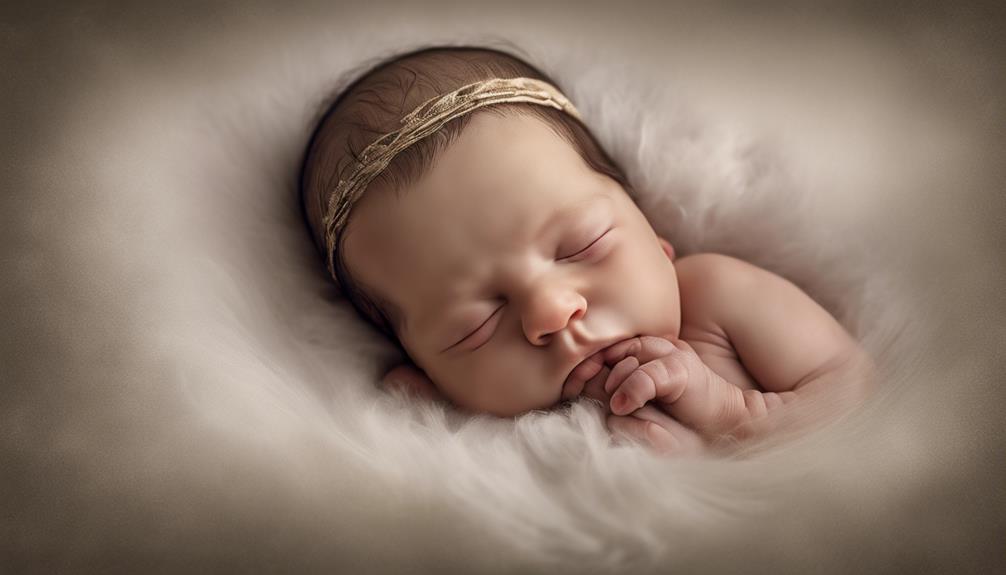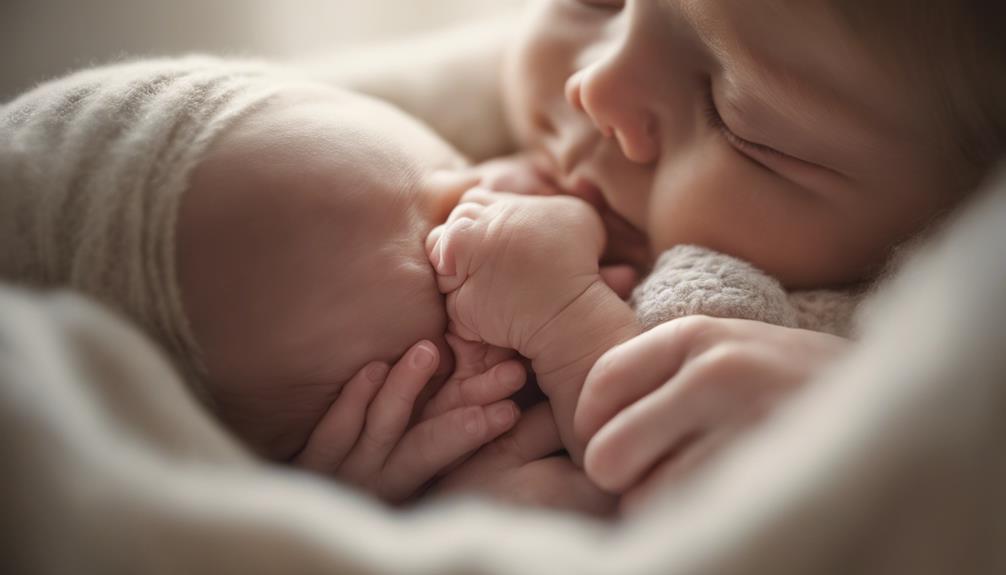While we watch our young ones peacefully falling asleep, it can be unsettling to see them gasping in their sleep. Even though this may cause concern at first, there are various reasons for this strange occurrence that may help calm your worries.
From common respiratory infections to potential underlying health conditions, understanding the causes can uncover the mystery of why your newborn might be gasping in their slumber.
Let's investigate these factors to unravel the mystery of why your newborn might be gasping in their slumber.
Key Takeaways
- Premature babies are at higher risk for sleep apnea due to breathing pauses.
- Gasping, snoring, and choking sounds during sleep are symptoms of sleep apnea.
- Low oxygen levels from sleep apnea can impact a newborn's growth and health.
- CPAP therapy is a treatment option to help newborns with sleep apnea.
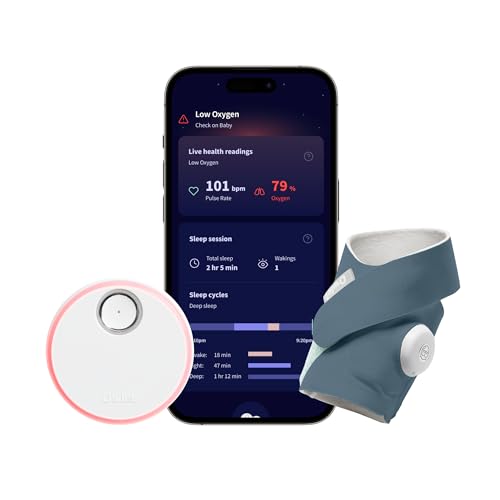
Owlet Dream Sock – FDA-Cleared Smart Baby Monitor – Track Live Pulse (Heart) Rate, Oxygen in Infants – Receive Notifications – Bedtime Blue
FDA-Cleared Wearable Baby Monitor: Dream Sock is the first FDA-cleared smart baby monitor providing real-time pulse rate and…
As an affiliate, we earn on qualifying purchases.
As an affiliate, we earn on qualifying purchases.
Respiratory Infections
Respiratory infections can be concerning for newborns, as they may experience inflammation and excess mucus in their airways, leading to symptoms like fever, cough, and sore throat. Newborns are particularly vulnerable to respiratory infections like the common cold and influenza. These infections can spread easily among newborns due to their immature immune systems and the close proximity in which they often interact.
When newborns have respiratory infections, their respiratory secretions contain higher amounts of viruses, increasing the risk of transmission to others. The presence of fever, cough, and sore throat in newborns should prompt caregivers to seek medical advice promptly. It's essential to practice proper hygiene practices, such as washing hands frequently and avoiding close contact with the newborn when experiencing respiratory symptoms.
Being aware of the symptoms and modes of transmission of respiratory infections is important in protecting newborns from these illnesses. By staying informed and taking necessary precautions, we can help safeguard the health and well-being of our little ones.

Frida Baby 3-in-1 Rectal, Underarm & Oral Thermometer for Kids, Digital Baby Thermometer for Infants, Toddlers, & Kids, Quick & Accurate Temperature Check, Includes Carrying Case for Storage
ACCURATE FOR ALL AGES: Designed for infants, toddlers, and kids, this thermometer delivers reliable readings whether used rectally,…
As an affiliate, we earn on qualifying purchases.
As an affiliate, we earn on qualifying purchases.
Asthma

Managing asthma in newborns can be a challenging journey, marked by symptoms like wheezing, coughing, and shortness of breath due to chronic airway inflammation. It can be distressing for parents to see their baby struggle with breathing, especially during sleep when episodes of gasping for air may occur. Asthma in infants is often linked to allergies, emphasizing the importance of monitoring symptoms closely.
Diagnosing asthma in newborns requires careful observation and evaluation by healthcare professionals who specialize in infant respiratory health. Additionally, recurrent bronchiolitis in babies can heighten the risk of developing asthma later in life, underlining the significance of early detection and management.
With approximately 8% of children in the US affected by asthma, it's crucial for parents to work closely with healthcare providers to guarantee the well-being of their little ones and provide them with the support needed for best respiratory health.

Little Remedies New Baby Essentials Kit with Saline Nasal Spray, Diaper Rash Cream, Gas Relief Drops, Gripe Water & More, Safe for Newborns
Little Remedies New Baby Essentials Kit contains the essentials a new parent needs to safely and effectively tackle…
As an affiliate, we earn on qualifying purchases.
As an affiliate, we earn on qualifying purchases.
Exposure to Smoke
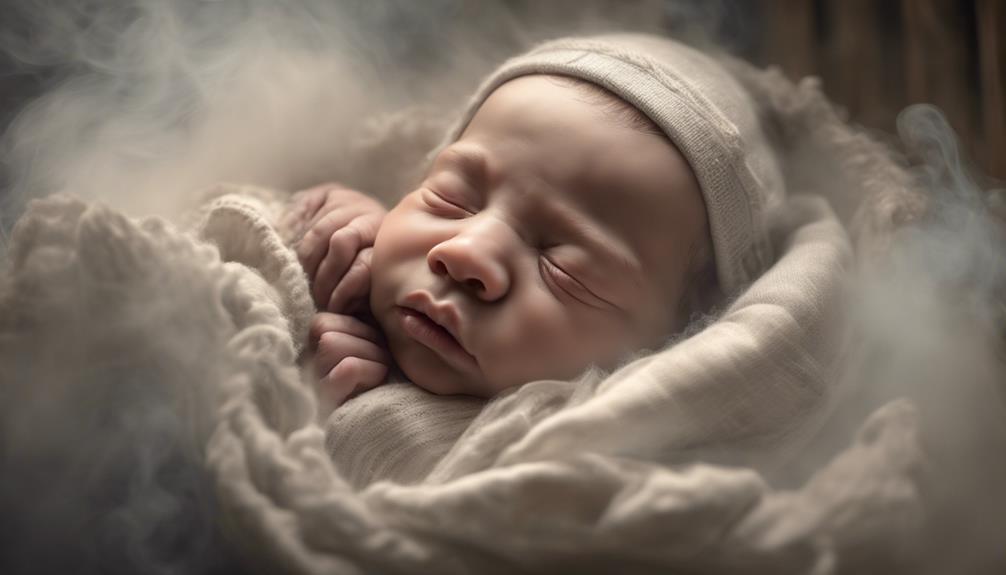
When it comes to newborns, exposure to smoke poses a serious threat to their delicate respiratory systems. It can increase the likelihood of gasping episodes during sleep. Newborns exposed to smoke, especially second-hand cigarette smoke, are at a higher risk of developing breathing difficulties and respiratory infections. The chemicals in smoke can irritate the newborn's respiratory tract, leading to inflammation in their airways and making breathing more challenging. This irritation not only affects their immediate breathing but can also contribute to long-term conditions like asthma.
It is important to understand that smoke exposure can have detrimental effects on a newborn's health, potentially triggering gasping episodes during sleep. To safeguard your newborn from these risks, it's essential to minimize their exposure to smoke. By creating a smoke-free environment, you can protect your baby's delicate respiratory system and reduce the likelihood of gasping episodes, ensuring a healthier start in life.

GROWNSY Nasal Aspirator for Baby, Electric Baby Nose Sucker with Larger Suction Chamber and More Powerful Suction, Automatic Nose Cleaner with Music and Light Soothing Function
EFFORTLESS CLEARANCE: GROWNSY's Top-Rated Electric Nasal Aspirator for Babies features 3 adjustable suction levels for customized comfort, features…
As an affiliate, we earn on qualifying purchases.
As an affiliate, we earn on qualifying purchases.
Laryngomalacia
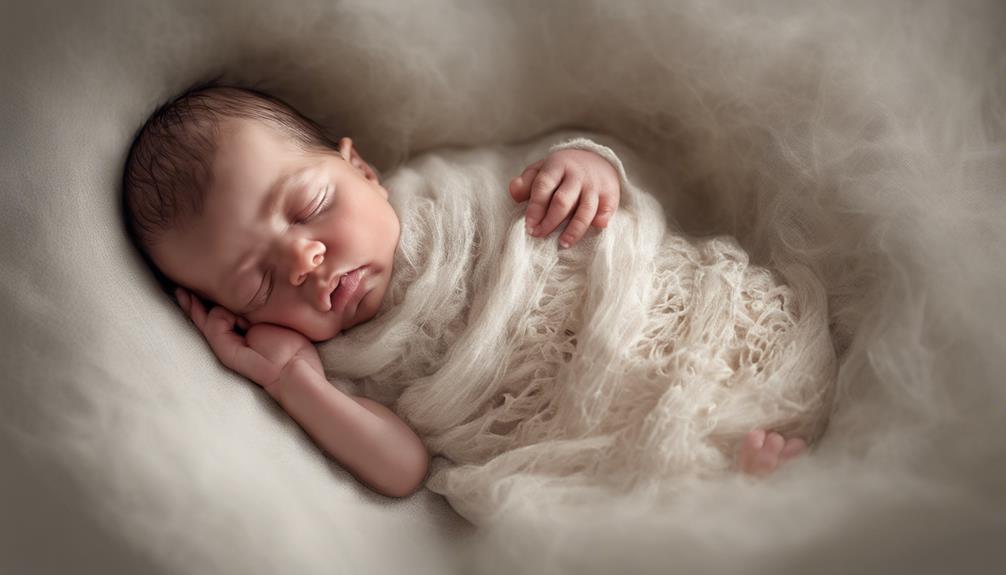
Experiencing a soft and floppy larynx, laryngomalacia is a common condition in infants that can result in noisy breathing, particularly during sleep. This condition, often characterized by a harsh, squeaky sound when breathing in (stridor), may worsen gradually over several months. While breathing difficulties with laryngomalacia typically do not lead to feeding problems, they may exacerbate during moments of crying or sleeping. In severe cases, infants may exhibit symptoms such as trouble breathing, feeding issues, poor weight gain, apnea (pauses in breathing), and cyanosis (blue discoloration of the skin).
The diagnosis of laryngomalacia involves a procedure called flexible laryngoscopy to confirm the condition. Healthcare providers also monitor for other associated problems like gastroesophageal reflux. Recognizing the signs and symptoms early is important in managing laryngomalacia effectively. If you notice any concerning signs in your infant, seek guidance from a healthcare professional promptly.
| Signs and Symptoms | Diagnosis and Monitoring |
|---|---|
| Noisy breathing in infants | Flexible laryngoscopy |
| Stridor | Gastroesophageal reflux monitoring |
| Feeding problems | |
| Apnea | |
| Cyanosis |
Sleep Apnea
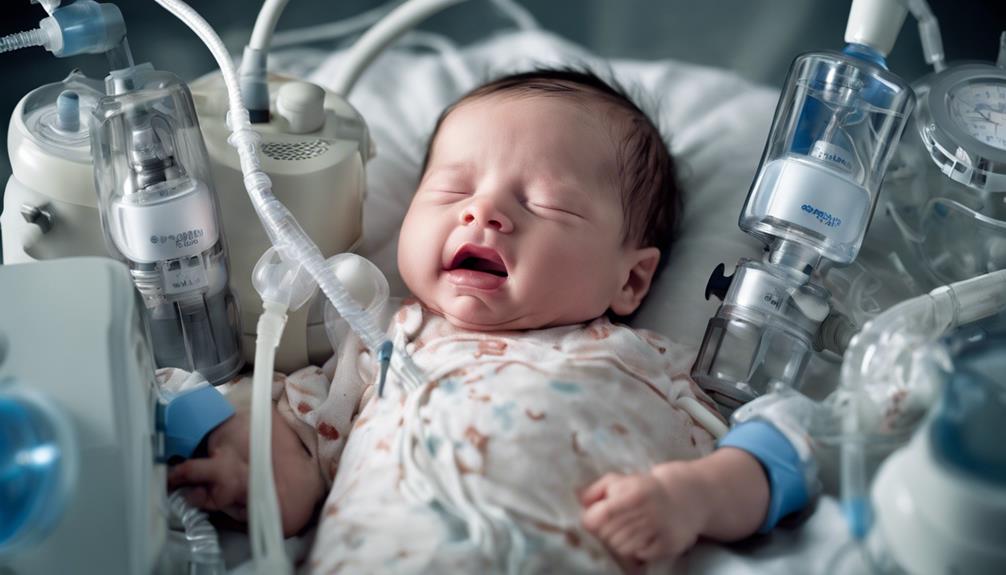
Sleep apnea in newborns is characterized by pauses in breathing during sleep lasting for 20 seconds or more. It is a condition that requires careful monitoring and appropriate intervention to guarantee the baby's well-being. Premature babies are particularly at risk due to their underdeveloped respiratory systems. Symptoms may manifest as snoring, gasping, or choking sounds during sleep.
This condition can result in low oxygen levels, impacting the baby's growth and overall health. Treatment options for newborn sleep apnea include monitoring the baby's breathing patterns, positional therapy to aid better airflow, and in severe cases, continuous positive airway pressure (CPAP) therapy to assist with breathing.
It's important for parents and caregivers to be vigilant for any signs of sleep apnea in newborns. Prompt detection and intervention can help manage the condition effectively and promote the baby's health and well-being.
Frequently Asked Questions
Why Does My Newborn Gasp for Air While Sleeping?
I acknowledge your concern about your newborn gasping for air while sleeping. It's common in infants due to immature lungs and irregular breathing patterns. Most episodes are harmless and resolve as the baby grows. If worried, seek medical advice promptly.
Why Does My Newborn Make Random Gasping Noises?
It is a fact that newborns making random gasping noises can be alarming, but it's usually due to their developing respiratory system. Immature reflexes and breathing patterns play a role. Understanding this helps parents feel reassured as their baby grows.
Why Does My Child Gasp for Air When Sleeping?
I comprehend your concern about your child gasping for air while sleeping. It's important to know that this can be normal in infants under 2 years old. Factors like reflux or teething may contribute.
Why Is My Baby Struggling to Breathe While Sleeping?
It's important to monitor for signs of GERD and breathing changes when babies struggle to breathe while sleeping. Elevating them with a wedge or sling can help alleviate symptoms and improve breathing.
Conclusion
To sum up, gasping in sleep is a common occurrence in newborns and can be caused by a variety of factors such as respiratory infections, asthma, exposure to smoke, laryngomalacia, and sleep apnea. While it may seem alarming, most cases are harmless and resolve as the baby grows.
Remember to create a peaceful sleeping environment and consult with healthcare providers if you have any concerns. Rest assured, your little one's health and well-being are our top priority, even if we may exaggerate a bit to emphasize the importance of monitoring their sleep patterns.
